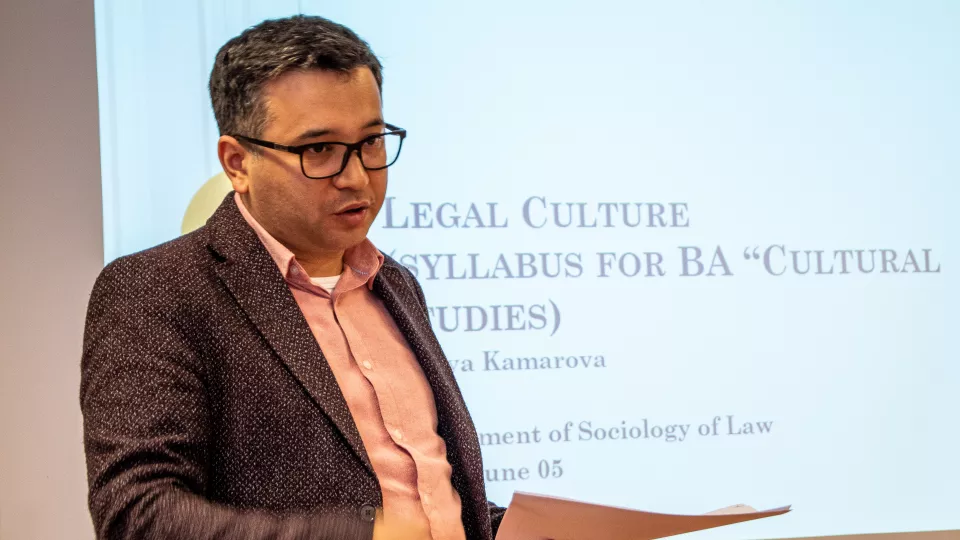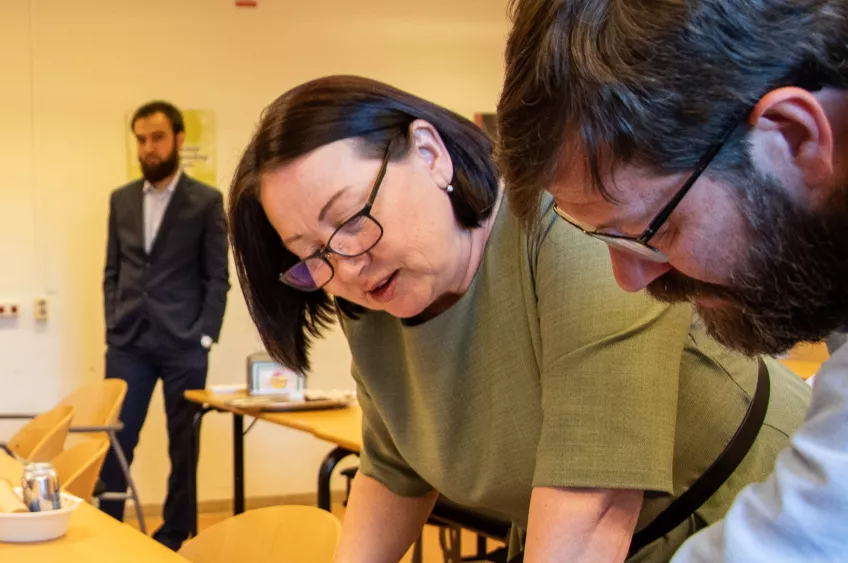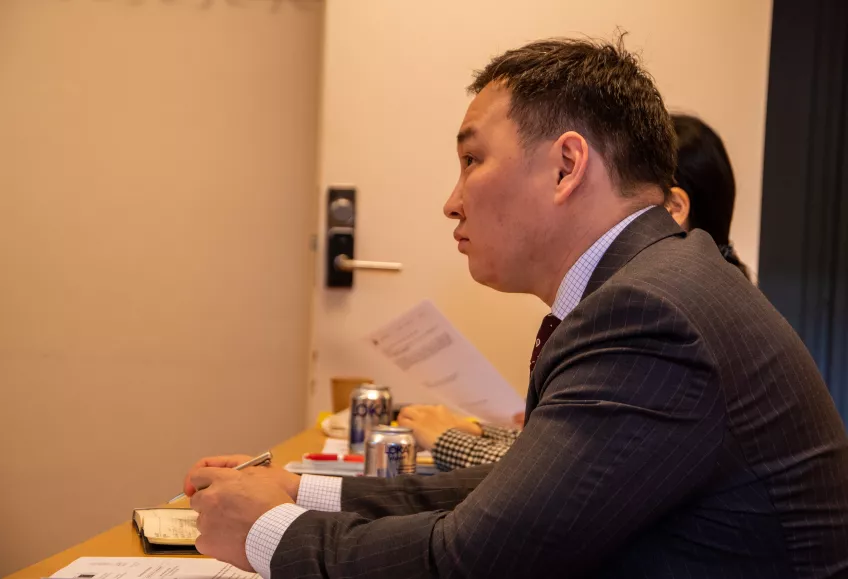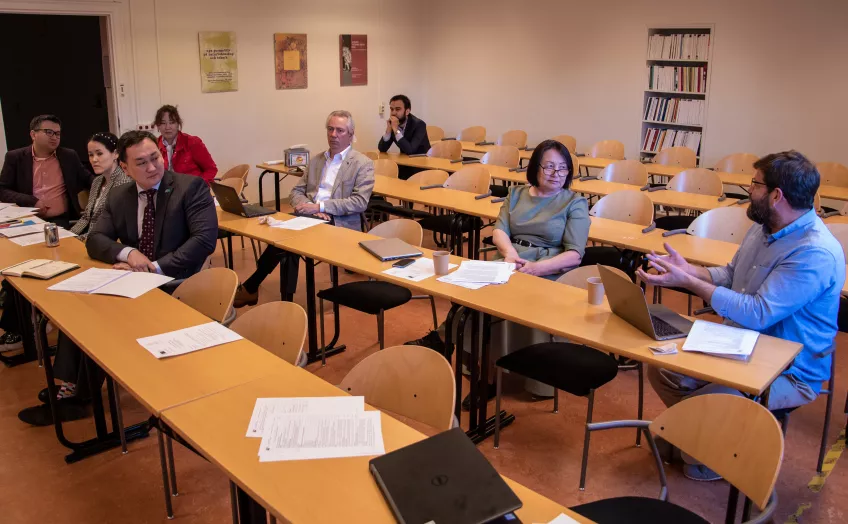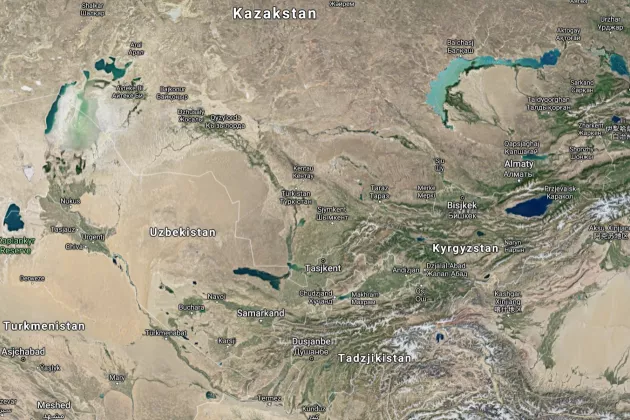Central Asian Law is a four-year research project involving six EU universities and partners from each of the five Central Asian countries. The aim is to improve the understanding between the two regions’ business and legal cultures. For that end, the EU has provided funds enabling the collaborating institutions to host visiting researchers for extended periods.
The first project seminar featured presentations by four guest researchers from Kazakhstan, Uzbekistan, and Tajikistan, who had spent the spring semester of 2020 at the Sociology of Law Department. Out of health concerns, a very limited audience was invited. Among the guests were two representatives from the Embassy of the Republic of Kazakhstan in Sweden, Minister-Counsellor Tolegen Ismailov and Embassy Officer on Culture and Education, Zhaniya Mukhadiyeva.
Ruziya Kamarova of the L.N. Gumilyov Eurasian National University in Nur-Sultan, Kazakhstan, discussed the syllabus for a presumptive bachelor programme in Cultural Studies, focused on Legal Culture. The courses would introduce an interdisciplinary approach in studying Legal Culture in Kazakhstan. Students would look at the development of Kazakh institutions and legislative framework since the fall of the Soviet Union, while broadening their professional skills.
Senior lecturer of The L.N. Gumilyov Eurasian National University, Kuralay Yermagambetova, presented a manual entitled "Cultural Branding of Kazakhstan". The manual discusses the theory, practice, technologies, and mechanisms for creating a cultural brand of the territory. She exemplified with cases of cultural branding in Kazakhstan.
Minister-Counsellor Ismailov commented on the importance of both cultural studies and research into the national branding of Kazakhstan, saying, “After the collapse of the Soviet Union, it was difficult to determine our national identity and our cultural specificity.”
After a brief recess the seminar changed focus to corruption. Tolibjon Mustafoev, enrolled in the Uzbek Academy of the General Prosecutor's Office, presented a research proposal to investigate the affiliation of the state anticorruption legal framework with business climate in Uzbekistan. “Businesses coming to the Uzbek market want to be protected financially, but there are still problems with designing solid anti-corruption laws in Uzbekistan, and we never look at the roots,” Mustafoev said. Lead researcher Rustamjon Urinboyev raised the question of corruption in Uzbekistan being connected not only to legal framework but also with the broader social norms and legal mentality.
Shuhrat Maqsudov, head of the international relations and project management office at Khujand Polytechnic Institute of Tajik Technical University, hosted the final session. His was a case study of how three universities in Khujand, Tajikistan, worked to promote a culture of lawfulness and to implement integrity principles among students, and used anticorruption software tools to dramatically reduce corruption. “Corruption in Tajikistan came with the Soviet Union. Almost all corruption could be removed from all areas of the country, but informal norms and practices are resilient and hinder the implementation of anti-corruption laws,” Maqsudov concluded.
